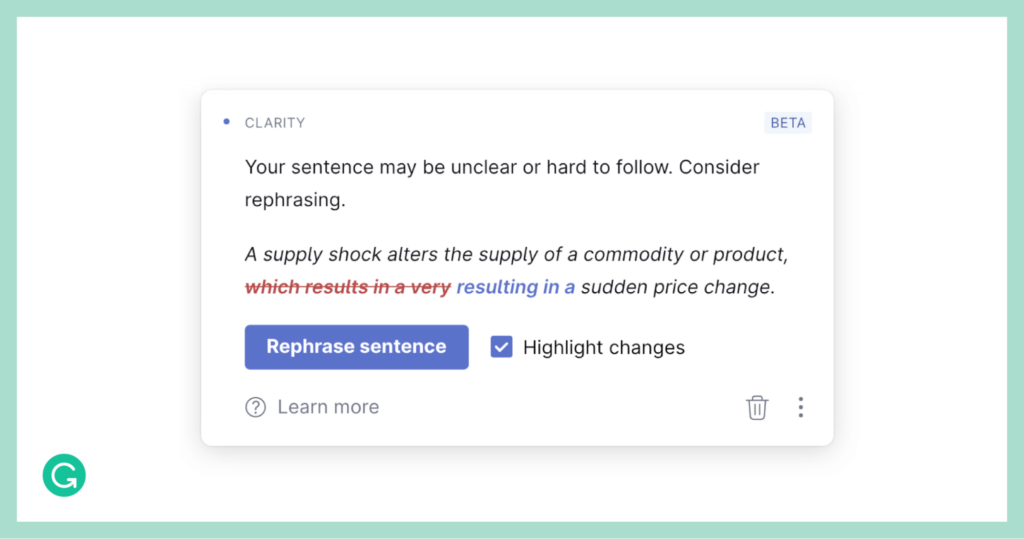Artificial Intelligence (AI) has made significant advances across a variety of industries within recent years. Its popularity has reached a fever pitch in the past few months, especially because of the buzz surrounding ChatGPT. From discussions about its features to interest communities rife with popular memes, OpenAI’s large language model is the latest iteration of AI advancement that people just can’t stop talking about.
So, is AI really taking over? As a digital marketer, you might be wondering how this affects your industry. While it’s a given how ChatGPT will no doubt leave its mark across different aspects of the digital marketing landscape, many in the business have identified search marketing and SEO as areas where AI is most likely to bring change. In this exposé, we explore why SEO is among the first digital marketing verticals to benefit from AI advancements like ChatGPT, and whether or not AI will play a crucial role in improving or degrading your search rankings.
AI is a general term that encompasses output functions such as Machine Learning (ML), computer vision, Natural Language Processing (NLP), and other still-emerging technologies. The example of ML itself describes the creation of algorithms and models that allow machines to proficiently understand various data and continuously improve its processes without explicit programming.
The emergence of AI-generated content has given digital marketers the opportunity to streamline content creation without sacrificing quality. With novel AI tools being released every day, it’s anyone’s guess how this convenience of automation will continue to evolve.
AI can also have a great impact on SEO for a business when it is used to create personalised content and user experiences. It can help you create content faster, analyse search trends, and identify relevant keywords. You can also use AI to automate SEO tasks that you find mundane, such as identifying relevant keywords and link building.
In a report by PwC, AI is predicted to increase productivity (due to automation) in the workplace by 40%. This means with AI, you can free up your time and resources to focus on other aspects of your SEO and marketing strategy.
According to previous surveys with early adopters in sales and marketing, there’s a 6-10% increase in revenue. Which is a compelling reason for businesses to get their hands on AI technology for SEO.
Now that hundreds of AI writing assistants and tools are available to use for SEO, bloggers, brands, and content creators are making the best possible ways to take advantage of this technology. Here are examples of how AI is being used for SEO processes:
Website audits. With machine-learning systems, you can now easily identify site-wide improvements that focus mainly on data rather than strict opinions. While it cannot replace the expertise of an SEO expert, this is really helpful in identifying gaps and areas for improvement faster, even real-time.
Keyword research. You can now automate and analyse search intent and provide insights on the most relevant and popular keywords.
Creating outlines and identifying topic clusters. You don’t have to spend a lot of time creating content outlines and identifying trending topics in your market to provide the most relevant content that your target audience will most likely consume.
With or without AI, speed and frequency remain a critical factor for content creation. To have a grasp of the changing landscape, one should consider how AI-powered content generators present a unique selling point for faster content production. However, brands and audiences alike will still need human expertise to ensure that AI-generated content remains of high quality and meets expected editorial standards.
Generating outlines. With tools like Jasper and Copy.ai, you can minimise the amount of time you’re spending for creating outlines. Using only a few parameters, these tools can generate an outline to kickstart your content creation process.

Identifying suggestions to improve your content. Tools like Grammarly have capabilities to identify your tone and provide suggestions real-time to improve your content. Even without working with a human editor, you can take the suggestions to make sure you are producing the best content possible.

Saying goodbye to writer’s block. While there’s big concern with originality of an AI-generated content, you can definitely use it to inspire your idea generation processes. If you need to come up with a huge amount of content quickly, an AI-assistant can always make your job easier.
As mentioned earlier, AI thrives on repetition. The algorithm trains the AI so it can learn the best ways to provide outputs based on the parameters we provide. You can automate processes that are repetitive and you can use AI to analyse on-page and technical elements such as:
Link building. This can be used to analyse link patterns and identify high-quality backlinking opportunities. AI tools such as Market Brew can tell you where, when, and how to optimise internal linking to achieve your highest ranking potential.
Metadata and more. Outranking.io offers powerful features with their platform. With just a click, you can generate meta tags, headings, and images that adhere with SEO guidelines.

AI for analytics. Google’s GA4 uses AI to provide insights to help you identify gaps in your SEO tactics. It also shows tips on how to improve your traffic acquisition, and alerts you for any significant changes in your data trends.
Voice Search. Since NLP is a major component of AI technology, using tools to optimise your website content for voice search to help virtual assistants find your content can give your website a boost in traffic.

In December 2022, Google introduced the Helpful Content Update. It aims to train the algorithm to identify content that’s genuinely informative or helpful to the reader. The update also deranks content that’s written for the sole purpose of getting a good ranking. Because of this, the algorithm will know if the content is optimised for search engines or for the readers.
While there are rumblings around the SEO community that this is their first step towards identifying AI-generated content, it’s unlikely that Google will crack down or restrict AI-generated content. This is mostly due to the company’s huge investment of resources towards the development and launch of its own AI platform, Bard, to improve its own search products.
On the other hand, ChatGPT’s backer, Microsoft has integrated AI to their search engine Bing which forever changes the way search engines are used. This new feature provides the option to start a chat in its toolbar, which then brings you to a ChatGPT-esque conversational experience.
It remains to be seen how these two tech giants will change the SEO landscape as trends are changing fast and search behaviours among Gen Zs continue to change.
There is no doubt that AI-driven content creation is here to stay, so hiring an agency that understands the ins and outs of AI for SEO and can be a game changer for your business.
If you’re looking to stay ahead of the curve when it comes to understanding and incorporating AI into your digital and search marketing processes, get in touch with our SEO team for award-winning agency support that can take your brand to the next level!
Don't be shy — say hello and we'll be glad to kickstart your next exciting digital marketing journey.